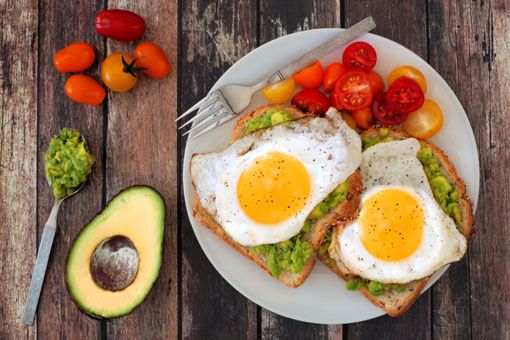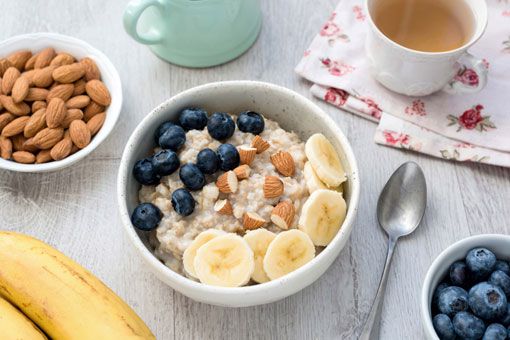
Top stories






More news


Marketing & Media
Ads are coming to AI. Does that really have to be such a bad thing?














This year, National Nutrition Week from 9–15 October and National Obesity Week (NNOW) from 15–19 October 2018 have united a coalition of health partners, including the National and Provincial Departments of Health, the Association for Dietetics in South Africa (ADSA), The Nutrition Society of South Africa (NSSA) and The Heart and Stroke Foundation SA (HSFSA) amongst others to promote a shared and very important message that breakfast is the best way to start the day.
“There are a number of key reasons why people skip breakfast,” says ADSA spokesperson and Registered Dietitian, Abby Courtenay. ”This is why it is so important to bust the myths around breakfast and give South Africans from all walks of life the information and help they need to make a healthy breakfast a happy, lifetime habit.”
Myth #1 I am skipping breakfast to lose weight
There is a host of studies that show that people who have a healthy breakfast habit have better weight outcomes than those that skip. Not eating breakfast puts you at risk of grabbing convenience foods with low nutritional value to help you make it through to lunchtime. Feeling starving by lunchtime also causes you to blow out proportions and overeat. “It’s a common belief that if you want to lose weight you should skip breakfast,” points out Kim Rutgers, also a Registered Dietitian and ADSA spokesperson. “This is far from the truth. Skipping any meal will mean important nutrients like vitamins and minerals will be missed.” Effective, and sustainable weight loss and management is instead achieved through healthy food choices, which includes breakfast.
Myth #2 I don’t have time in the morning for breakfast
It is true, that for most of us, the morning is far more time-stressed in comparison to supper. However, planning, preparation and smart food choices will result in being able to either sit down and eat breakfast with your family or eat your breakfast over the two to three hours after waking. Abby advises: “From a time perspective, drinking is often quicker than sitting down to a full meal and so my suggestion is a nutritious smoothie. I encourage my patients to blend together a small banana, oats, sugar-free peanut butter and low fat milk. Baby spinach is an optional extra. Not only is this the quickest meal, but it contains balanced portions of fruit, vegetables, minimally processed grains and healthy plant fats. What a way to start your day!” With some planning, preparations for breakfast can be made the night before. Beat the clock by soaking your oats, cutting fruit and boiling eggs during your supper preparation so that it is as easy as possible to make breakfast a quick, enjoyable family meal.

Myth #3 I can’t eat breakfast, I don’t wake up hungry
Many people question the advice to eat when they don’t yet feel hungry, but breakfast doesn’t have to be immediate or done all in one go. It can take place during the two or three hours after waking. Abby says: “Swap your smaller mid-morning snack and breakfast around. For example, eat a fruit when you are getting ready for work or school and then enjoy a bigger, more complete meal at around 10h00. This way you are getting in all the food and nutrients you need whilst still honouring your body’s natural hunger cues.”
Myth #4 I can’t eat breakfast, I don’t like cereals or eggs
A healthy breakfast doesn’t have to be traditional or contemporary breakfast foods. If you don’t like them, don’t eat them; other healthy food choices make a great breakfast. It’s also important to keep in mind that many processed foods marketed as breakfast foods can be laden with sugar and are nutrient poor, and are not the healthy options. “Use up your leftovers for breakfast,” says Abby. “Breakfast food doesn’t always have to be cereal and eggs. Why not have leftover mince on toast with fresh tomato slices or use your leftover pumpkin to make pumpkin fritters?”
When it comes to what a healthy breakfast should consist of, Kim agrees: “The three main nutrient groups are carbohydrates, proteins and fats. When all three of these macronutrients, in the right proportions are included in one meal, then you are getting in a balanced, nutritious meal.”
Myth #5 Not eating breakfast saves us money
In the short term, reducing your food bill by skipping breakfast is a folly that will play out in your future and cause unforeseen health expenses. Studies have shown that people who regularly eat healthy breakfasts are at lower risk for expensive conditions such as overweight and obesity; hypertension and heart disease. The issue is rather about how to make breakfast more affordable. According to Abby, healthy eating does not have to expensive. “It may take a little extra planning but when you are in the routine of eating well, you will actually save money. Consider how much you can save with less store-bought convenience foods, takeaways and eating out.”
Top tips for affordable, healthy breakfasts include:
For more information on how breakfast is the best way to start your day, visit the National Nutrition & Obesity Week 2018 website for more tips and recipes: http://www.nutritionweek.co.za/.
To find a dietitian in your area, visit www.adsa.org.za.